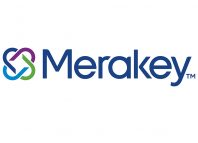Joint Bulletin OVR Referral Process for ODP Employment-Related Services
Kristin Ahrens, Deputy Secretary for ODP and Ryan Hyde, Acting Executive Director for Office of Vocational Rehabilitation (OVR), signed a joint bulletin on February 14, 2019 to become effective on February 15, 2019. Bulletin 00-19-01 provides updated guidance regarding requirements for when individuals must be referred to OVR to align with the requirements in the current Consolidated Waiver, Person/Family Direct Support (P/FDS) Waiver, Community Living Waiver, and Adult Autism Waiver (the ODP Waivers), and the Workforce Innovation and Opportunity Act (WIOA) (Pub.L. 113-128) and clarifies that the guidance in this bulletin applies to employment-related services funded through base-funding provided for by the Mental Health and Intellectual Disability Act of 1966 (50 P.S. §§ 4101-4704).
In accordance with the Employment First Act (62 P.S. §§ 3401-3409), competitive integrated employment is the preferred outcome for individuals receiving services funded through the ODP Waivers or base-funding and OVR services. An employment outcome is the first and preferred outcome because it provides many benefits to the individual including, but not limited to: increased opportunities for economic self-sufficiency, an opportunity to contribute to the community, a chance to build a network of social relationships, and the creation of opportunities for lifelong learning. An employment outcome is also consistent with the overall goals and recommendations in Everyday Lives: Values in Action, the document that provides guiding principles for the Office of Developmental Programs (ODP).
The employment recommendation in Everyday Lives: Values in Action states: “Employment is a centerpiece of adulthood and must be available for every person. The benefits of employment for people with disabilities are significant and are the same as for people without disabilities.” In addition, Everyday Lives: Values in Action includes the following value statement developed by self-advocates: “I want to work and/or have other ways to contribute to my community. My family, supporters, and community support me to find and keep a real job that I like with good wages and benefits or start and run my own business, and/or volunteer the way I want in my community.”
ODP and OVR have been working closely together to ensure that all individuals enrolled in ODP Waivers or receiving base-funded services have access to experiences and services that will enable them to obtain an employment outcome and receive the benefits that come from being employed. Supports Coordinators must refer an individual to OVR for OVR to determine the individual’s eligibility for services when an individual who is enrolled in an ODP Waiver or is receiving base-funded services indicates an interest in seeking employment or requests that the following employment-related services be added to his or her Individual Support Plan (ISP):
Consolidated, P/FDS, and Community Living Waivers:
- Advanced Supported Employment;
- Supported Employment;
- Small Group Employment;
- Community Participation Support; and
- Education Support.
Adult Autism Waiver:
- Supported Employment;
- Career Planning; and
- Transitional Work.
All other services offered by the ODP Waivers do not require a referral to OVR.
Once an individual is referred to OVR, OVR will determine using its own eligibility standards and criteria if the individual is eligible for OVR services. OVR will not make a determination if employment-related services provided through ODP Waivers or base-funded services are needed or appropriate for the individual.
It is critical that OVR staff and Supports Coordinators engage in ongoing conversations during the OVR referral and eligibility determination process to ensure that timely eligibility determinations are made. Ongoing conversations allow OVR staff and Supports Coordinators to discuss the following topics:
- Whether additional information is needed by OVR staff to make an eligibility determination.
- If OVR staff has any concerns about the individual. For example, OVR staff may report that the individual has experienced a prolonged illness that has impacted OVR staff’s ability to set up meetings and determine the individual’s eligibility for OVR services.
- The date that OVR staff expects to make an eligibility determination.
- Services and supports that OVR staff is exploring with the individual.
In some circumstances, OVR may not have the capacity to serve every individual referred by a Supports Coordinator in a timely manner. In such cases, there are special provisions in the ODP Waivers that allow the Supports Coordinator to access Waiver funding without receipt of an OVR eligibility determination.
Please see the bulletin and:
- Attachment 1 Employment Service Definitions as Approved in the Current ODP Waivers
- Attachment 2 OVR Pre-Applications (Form 810)
- Attachment 3 PA CareerLink and OVR Pre-Application Instructions
- Attachment 4 OVR Contact Information for Local ID/Autism Coordinators
- Attachment 5 OVR Referral Timeline Chart
- Attachment 6 Support Coordinator’s Checklist for a Referral for OVR Services
Contact Carol Ferenz, RCPA IDD Division Director, with questions.










